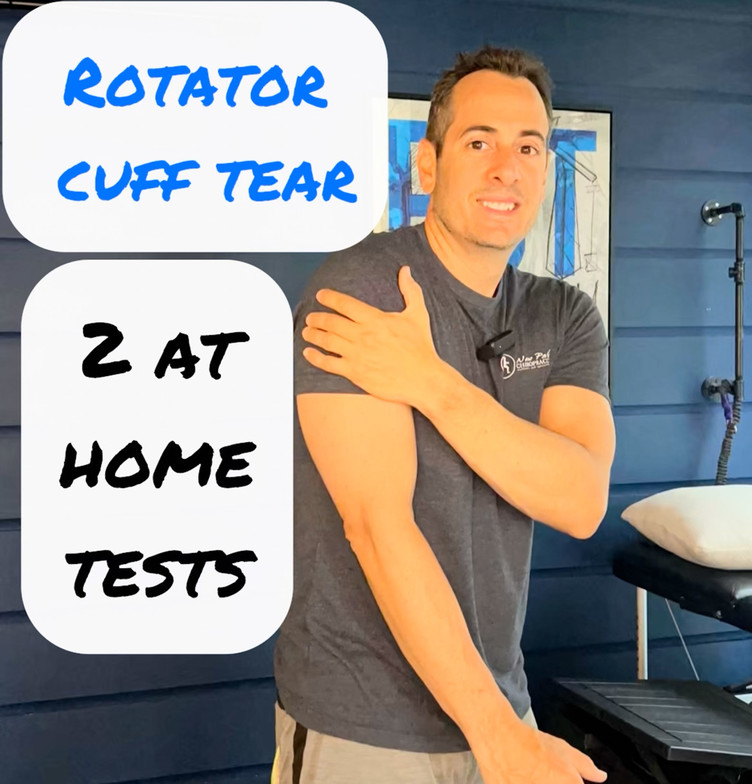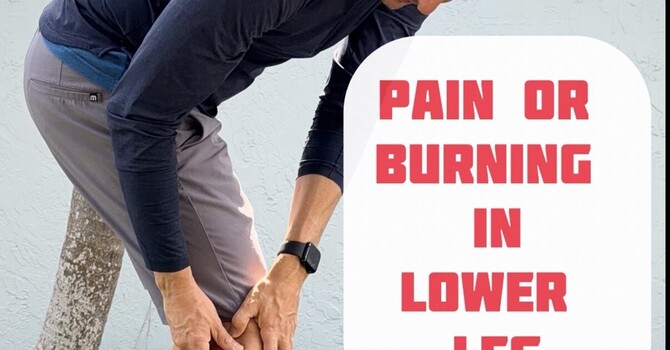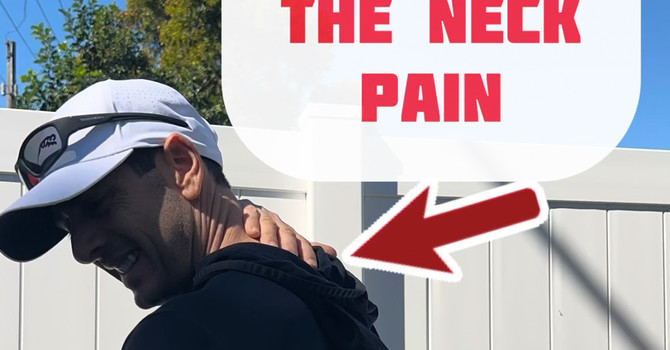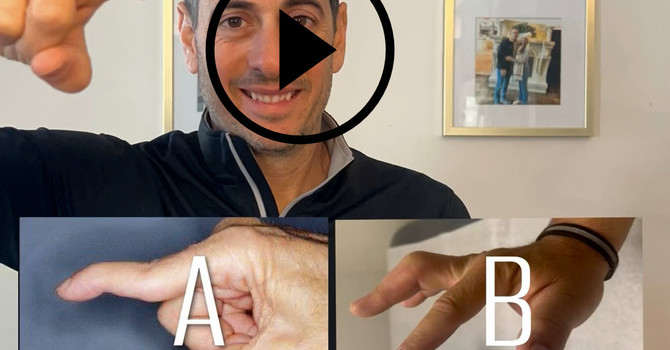
If you’re dealing with nagging shoulder pain, especially with lifting, reaching, or overhead movements, there’s a good chance your rotator cuff may be involved. Rotator cuff tears are one of the most common shoulder injuries and can lead to weakness, limited mobility, and persistent discomfort in daily activities.
What Is the Rotator Cuff?
The rotator cuff is a group of four muscles and tendons that surround the shoulder joint. Their job is to stabilize the shoulder and allow smooth movement in multiple directions. Tears in the rotator cuff can occur from overuse, trauma, or age-related degeneration. Whether you're an athlete or someone who performs repetitive overhead tasks, this area is prone to injury.
2 At-Home Tests to Screen for a Rotator Cuff Tear
You don’t need fancy equipment to check whether your rotator cuff might be involved. Here are two simple self-tests you can try at home:
1. Empty Can Test
This test screens for a tear in the supraspinatus muscle—one of the most commonly injured rotator cuff muscles.
How to do it:
-
Raise one arm in front of you at about a 45-degree angle from your body.
-
Turn your thumb downward as if you're emptying a can.
-
Using your opposite hand, apply light downward resistance while trying to lift your arm upward.
What to watch for:
-
Pain, weakness, or inability to resist may suggest a supraspinatus tear or tendon irritation.
2. Drop Arm Test
This test assesses your ability to control your arm using the rotator cuff muscles.
How to do it:
-
Raise your arm straight out to the side until it's overhead.
-
Slowly lower it back down under control.
What to watch for:
-
If your arm drops suddenly or you feel sharp pain, it could indicate a rotator cuff tear or significant weakness in the shoulder stabilizers.
What If the Tests Are Positive?
If either of these tests causes pain, weakness, or instability, it's a sign that you should get your shoulder professionally evaluated. Early diagnosis and treatment can help prevent further damage and get you started on a targeted rehab plan to restore strength, control, and function.
Don’t wait for the pain to become chronic. Addressing shoulder issues early can make a huge difference in your recovery timeline and outcome.
Need help with your shoulder pain?
Whether you're in early rehab or trying to prevent future injuries, guided exercises and hands-on therapy can help you move and feel better.

Dr. Steve Muscari
Contact Me




